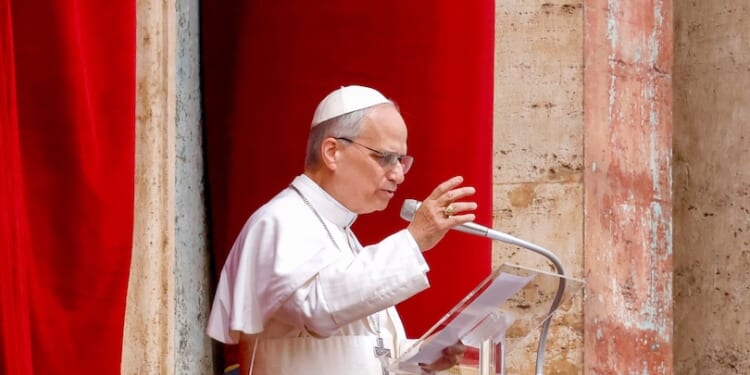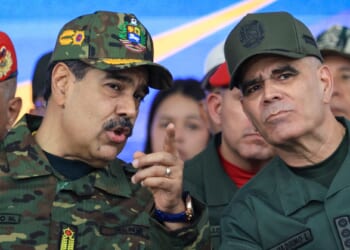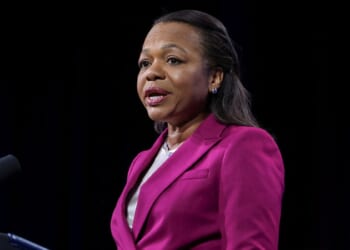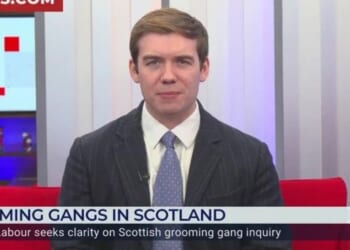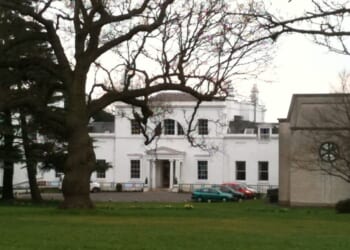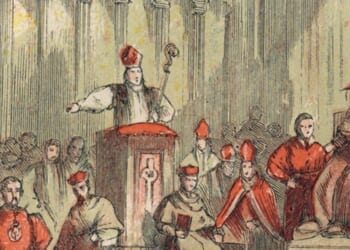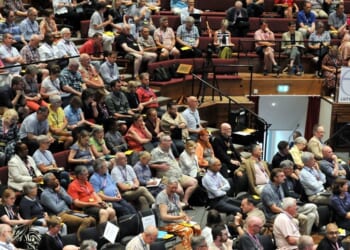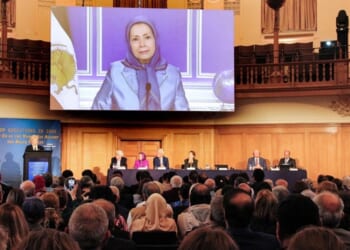(LifeSiteNews) — Pope Leo XIV has placed the controversial concept “synodality” at the center of his vision for the Church, describing it as an attitude of “dialogue” meant to bring together clergy and laity.
His comments, released on September 18 in León XIV: ciudadano del mundo, misionero del siglo XXI, a new biography by Crux reporter Elise Ann Allen, were accompanied by a video excerpt timed to the book’s launch. The pope said synodality was not a plan for democratization but a way of “walking together.”
Yet concern remains among senior churchmen who have warned that synodality risks becoming a cover for doctrinal innovation. Cardinal Gerhard Müller, former prefect of the Congregation for the Doctrine of the Faith, said in 2023 that recent synodal assemblies were “very controlled” and at times “manipulated,” with some voices advancing causes such as homosexual “blessings” and “women’s ordination.”
Cardinal Raymond Burke has likewise cautioned that synodality is “not a mark of the Church” and said its proposals are “dangerous,” as they create confusion about the Church’s mission and undermine clear teaching on marriage, sexuality, and governance.
In Germany, the synodal process already advanced proposals for lay governance and radical changes to sexual teaching, doctrine, and discipline – developments that critics, including bishops, warn could lead to schism.
However, the pope’s words, now published for a wide readership, show his determination to present synodality as the hallmark of his pontificate in continuity with Pope Francis.
“Synodality is an attitude, an openness, a willingness to understand. Speaking of the Church now, this means each and every member of the church has a voice and a role to play through prayer, reflection … through a process,” he said.
In the interview, the Pope acknowledged contention surrounding the shape synodality has taken in some corners of the Church among the hierarchy, where it has been seen (by both those in favor and against its doing so) as undermining episcopal and magisterial authority.
Addressing this directly, he said: “Sometimes bishops or priests might feel, ‘synodality is going to take away my authority’. That’s not what synodality is about, and maybe your idea of what your authority is, is somewhat out of focus, mistaken.”
Instead, he suggested that synodality is about finding ways to “come together” and for people to contribute to the life of the Church. “Each person with his or her own vocation – priests, laity, bishops, missionaries, families – has a role to play and something to contribute, and together we look for the way to grow and walk together as church.”
Warning against those who might interpret synodality as a bottom-up ecclesial democratization, he said the Church must not be “transformed … into some kind of democratic government,” observing that democracy itself “is not necessarily a perfect solution to everything.”
The Pope’s remarks reflect a consistent line since his election earlier this year, which affirm a positive view of the synodal process. In his first address from the balcony of St. Peter’s Basilica on May 9, he pledged: “We want to be a synodal Church. A Church that walks, a Church that always seeks peace, that always seeks charity, that always seeks to be close especially to those who suffer.”
The following day, he gave deliberate significance to synodality once again. Addressing the College of Cardinals, he identified “growth in collegiality and synodality” as one of the central commitments of his pontificate, alongside evangelization and service to the poor.
In his Crux interview, Pope Leo also drew attention to the experience of the Latin American Church (where “synodality” has been a formalized and regular part of the governance of the Catholic Church for a significant time).
“Some of the Latin American Church has really contributed to the universal Church,” he said, expressing a hope that the global Church might continue that trend. He situated synodality within the broader attempts at renewal following the Second Vatican Council, saying: “Since the time of the Second Vatican Council, I think that’s been significant, and there’s a lot to be done yet.”
However, Latin America has suffered a sharp decline in Catholic identification and serious problems with heterodox clergy, liturgical abuses, and collapsing morals in recent decades.
For the sake of clarity, Pope Leo’s remarks on synodality in his Crux interview are provided in full below:
“Synodality is an attitude, an openness, a willingness to understand. Speaking of the Church now, this means each and every member of the church has a voice and a role to play through prayer, reflection… through a process. There are many ways that that could happen, but of dialogue and respect of one another. To bring people together and to understand that relationship, that interaction, that creating opportunities of encounter, is an important dimension of how we live our life as church.”
“Some people have felt threatened by that. Sometimes bishops or priests might feel, ‘synodality is going to take away my authority’. That’s not what synodality is about, and maybe your idea of what your authority is, is somewhat out of focus, mistaken. I think that synodality is a way of describing how we can come together and be a community and seek communion as a church, so that it’s a church whose primary focus is not on an institutional hierarchy, but rather on a sense of ‘we together’, ‘our church’. Each person with his or her own vocation, priests, or laity, or bishops, missionaries, families. Everyone with a specific vocation that they’ve been given has a role to play and something to contribute, and together we look for the way to grow and walk together as church.”
“It’s an attitude which I think can teach a lot to the world today. A little bit ago we were talking about polarization. I think this is sort of an antidote. I think this is a way of addressing some of the greatest challenges that we have in the world today. If we listen to the Gospel, and if we reflect upon it together, and if we strive to walk forward together, listening to one another, trying to discover what God is saying to us today, there is a lot to be gained for us there.”
“I do very much hope that the process that began long before the last synod, at least in Latin America – I spoke about my experience there. Some of the Latin American church has really contributed to the universal church – I think there’s great hope if we can continue to build on the experience of the past couple years and find ways of being church together. Not to try and transform the church into some kind of democratic government, which if we look at many countries around the world today, democracy is not necessarily a perfect solution to everything. But respecting, understanding the life of the Church for what it is and saying, ‘we have to do this together’. I think that offers a great opportunity to the Church and offers an opportunity for the Church to engage with the rest of the world. Since the time of the Second Vatican Council, I think that’s been significant, and there’s a lot to be done yet.”

